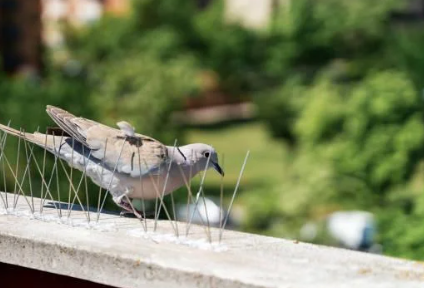The Importance of Bird Spikes for Dubai’s Businesses

Dubai, renowned for its towering skyscrapers, bustling city life, and vibrant business environment, faces a unique challenge — the presence of birds in urban settings. While birds contribute to the city’s ecological balance, their presence can also pose significant challenges for businesses, especially those located in high-rise buildings and commercial areas. This is where bird spikes play a crucial role in maintaining the aesthetic appeal, cleanliness, and safety of Dubai’s commercial spaces. As the holiday season approaches, businesses may also consider Christmas Gifts for their clients or partners, and ensuring a clean and presentable environment can be a part of that gesture.
Understanding the Issue
Bird spikes in Dubai, attracted to the city by food sources and suitable nesting sites, often roost and nest on building ledges, rooftops, and other structures. While seemingly harmless, their presence can lead to several issues for businesses:
Health and Safety Concerns: Bird droppings not only deface building exteriors but can also pose health risks to occupants. Diseases such as histoplasmosis and cryptococcosis can be transmitted through bird droppings, presenting a serious health hazard.
property Damage: Bird droppings are highly corrosive and can damage building materials over time, leading to costly repairs and maintenance.
Aesthetic Impact: The unsightly appearance caused by bird droppings can deter potential customers and investors, affecting business reputation and revenue.
Read more: clipart:7hwsmjhucsg= merry christmas
Enter Bird Spikes
Bird spikes are simple yet effective devices designed to deter birds from landing or roosting on building ledges, rooftops, and other surfaces. Made from materials like stainless steel or durable plastics, these spikes are installed along ledges and other areas where birds tend to perch. Here’s why they are indispensable for Dubai’s businesses:
Non-harmful Deterrence: Unlike harmful methods like chemical repellents or physical traps, bird spikes provide a humane deterrent. They simply create an uneven surface that birds find uncomfortable to land on, encouraging them to seek alternative roosting sites without causing harm.
Durability in Extreme Conditions: Dubai’s climate, characterized by high temperatures and occasional sandstorms, demands durable solutions. Bird spikes are designed to withstand these conditions, ensuring long-term effectiveness and minimal maintenance.
reserving Architectural Integrity: Unlike netting or other obstructive measures, bird spikes are discreet and preserve the architectural aesthetics of buildings. They blend seamlessly with the building’s design while effectively addressing the bird control issue.
Compliance with Regulations: In Dubai, where cleanliness and maintenance standards are high, businesses are expected to maintain their properties to a certain standard. Bird spikes help businesses comply with these regulations by keeping their premises clean and bird-free.
Practical Applications
In Dubai’s competitive business landscape, every detail matters. Bird spikes find extensive use in various sectors:
Hotels and Hospitality: Protecting outdoor dining areas and guest accommodations from bird droppings ensures a pleasant experience for visitors.
Commercial Towers: Maintaining pristine exteriors enhances the professional image of office buildings, attracting prestigious tenants and clients.
Retail Outlets: Preventing birds from nesting near entrances and display areas preserves product integrity and enhances the shopping experience.
Conclusion
Bird spikes are more than just a tool for bird control; they are indispensable assets for maintaining the cleanliness, safety, and aesthetic appeal of Dubai’s commercial spaces. By investing in bird spike installations, businesses not only protect their investments but also uphold Dubai’s reputation as a global business hub committed to excellence in infrastructure and environmental stewardship. As Dubai continues to grow, the role of bird spikes in urban planning and facility management will only become more critical, ensuring sustainable and prosperous business environments for years to come.




